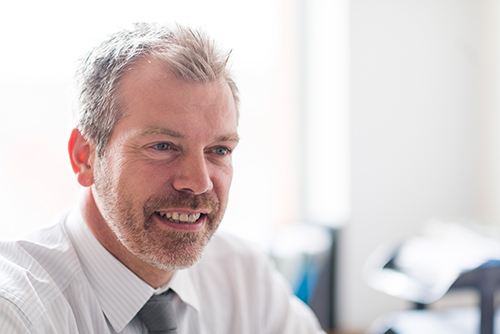Following the recent Chartered Institution of Wastes Management (CIWM) Presidential inauguration, a new digital report entitled ‘This Is What We Do: Showcasing A World-Class Sector & The UK’s Circular Economy Pathfinders’ has been launched to showcase the excellence in the UK’s recycling and resource recovery sector and its significant contribution to the UK economy.
The waste and resources sector plays a vital role in the UK economy, employing over 100,000 people and servicing nearly every home and business. The industry, working with governments and local authority partners, continues to drive up recycling rates, with the UK now standing at 44% overall. The top recycling areas in the UK are now:
- Wales – Pembrokeshire (74.3%)
- England – Three Rivers District Council in (63.5%)
- Northern Ireland – Antrim & Newtonabbey (60.2%)
- Scotland – East Renfrewshire (58.1%)
All the above exceed the UK’s target of 55% by 2025. Even waste that cannot currently be recycled is put to good use and every day the industry generates enough energy from waste derived fuels to power circa 1.5m homes.
Since 1990, the sector has taken great strides, largely through the reduction in landfill via substantial investment in recycling and resource recovery infrastructure, to shrink the greenhouse gas emissions resulting from the waste we produce by 46%. CIWM members continue to actively engage in incentivising waste reduction and deploying innovative services and technologies to accelerate the move towards a more circular economy. This innovation includes harnessing the power of AI and robotics to improve productivity and reduce health and safety risks at recycling facilities. Robotic arms, for example, are already in use in places such as FFC’s plant in Reading to support world class levels of recycling. The sector is committing to invest a further £15bn over the coming decades in next-generation recycling and resource recovery facilities, such as Viridor’s plastics recycling facility in Avonmouth, to help deliver a closed-loop economy.
The sector is also at the heart of British culture. Veolia, for example, plays a key role in keeping the streets of Westminster safe and clean during world-class events such as the recent King’s coronation. When the World’s attention falls on the UK, CIWM members put their best foot forward to ensure outstanding street cleansing and recycling services.
But away from the high-profile events and major investment programmes, the waste and resources industry is also delivering real, tangible social value through its activities – from re-use shops to charity partnerships and more. Recent research found that, over the last 18 months, for every £1 spent on delivering services to Suffolk County Council the contractor, FCC, was generating £0.60 in social value. At the grassroots level the sector is helping to change the communities in which it works.
Dan Cooke, incoming CIWM President for 2023 (pictured above) said, “Each year the president of CIWM has the privilege of producing a report on an aspect of the crucial work delivered by the waste and resources sector. This year, which marks the 125th year of the CIWM, we’ve chosen to showcase the genuinely world-class services, facilities, contracts, and people we have within the sector in the UK – increasing resource efficiency and quietly delivering benefits to our communities and economy.
“Through the process of reviewing and collating the projects highlighted in the report, the innovation, commitment, and quality of thousands of professionals across the UK comes through loud and clear. Many people not involved in this sector may not appreciate the lengths to which we go to reduce waste, and to ensure that materials can be recycled and how value can be recovered from ‘rubbish’. This is a chance to shine some light on the outstanding services and resource management leadership we have here in the UK as we drive towards a more circular economy.”




